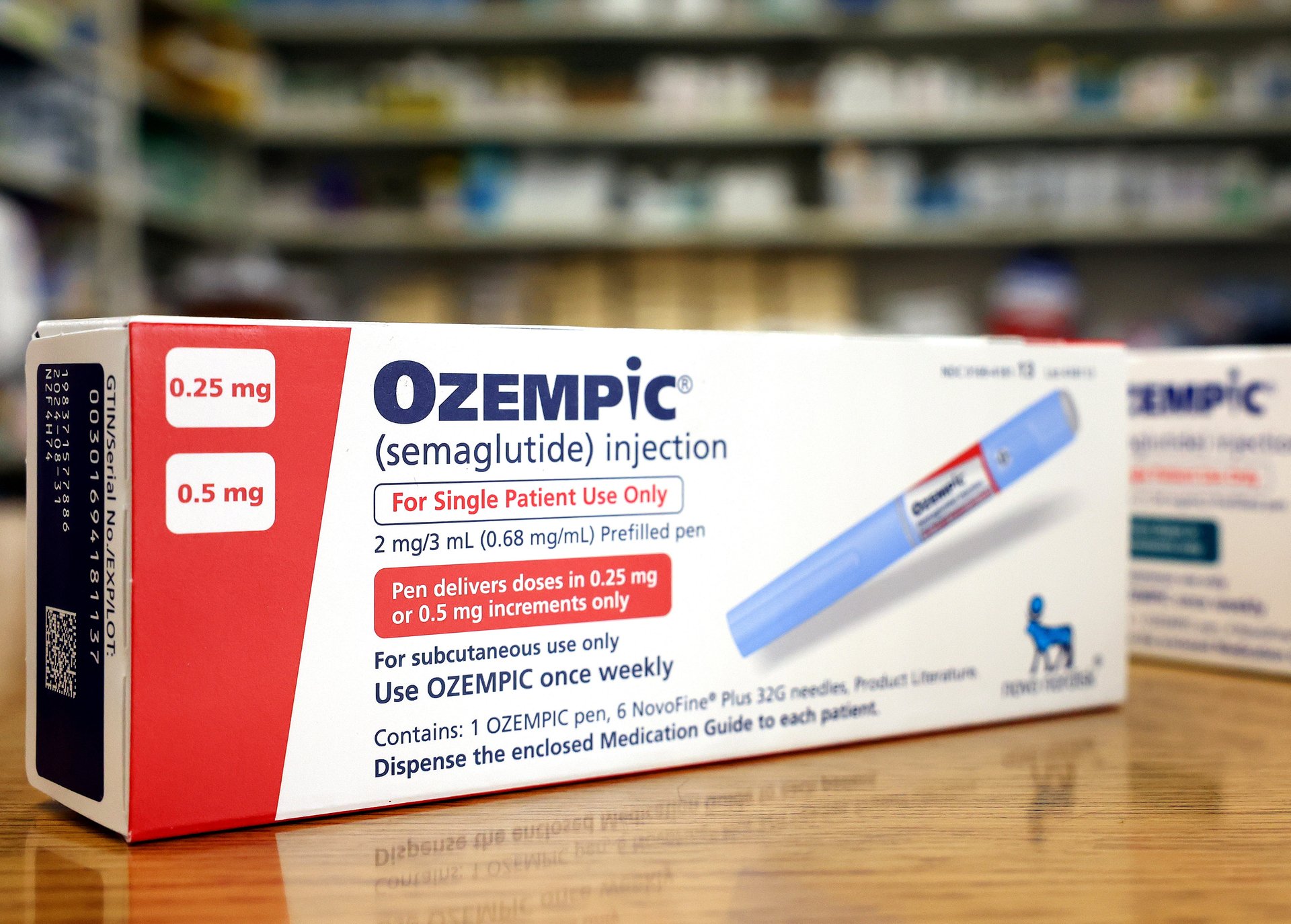Ozempic and WeGovy could help curb tobacco cravings, study finds
Smokers with diabetes who took Ozempic had fewer tobacco-related treatments than patients taking other diabetic drugs

Novo Nordisk’s blockbuster drug Ozempic could potentially help people struggling with tobacco addiction, according to a new study published Tuesday in the Annals of Internal Medicine.
Suggested Reading
In a retrospective study, researchers found that smokers with type 2 diabetes that were prescribed Ozempic were up to 32% less likely to discuss tobacco use with a doctor a year after starting their treatment, compared to patients taking other diabetes drugs.
Related Content
Patients taking Ozempic were also up to 68% less likely to receive prescriptions for drugs to help them quit smoking and 21% less likely to receive counseling for their addiction.
Researchers from Case Western Reserve University School of Medicine made the findings by analyzing the medical records of over 200,000 new users of diabetes medications from December 2017 to March 2023.
“These findings suggest the need for clinical trials to evaluate semaglutide’s potential for tobacco use disorder treatment,” the study authors wrote.
The study follows other anecdotal evidence from patients and health care providers that suggests GLP-1s can help users curb their addictions to alcohol and tobacco.
A Morgan Stanley survey from earlier this year found that people using GLP-1 drugs — among them Ozempic, Wegovy, Mounjaro, and Zepbound — reduced their consumption of tobacco and alcohol while taking the medications. The new class of diabetes and weight loss drugs have recently caught fire for their ability to suppress a user’s appetite.
The investment bank surveyed approximately 300 GLP-1 users about their consumption habits while taking the medication.
While 40% of survey respondents said they smoked cigarettes at least weekly before starting a GLP-1 treatment, that number fell to 24% after they started the treatment. Meanwhile, weekly e-cigarette usage dropped from 30% of respondents to 16% after they started taking a GLP-1.
The analysts noted they were “cautious about drawing conclusions” from their survey about the impact of GLP-1 drugs on addictive behaviors. While research hasn’t yet proven a causal link between the two, clinical trials are currently underway to better understand the effects of GLP-1s on alcohol and tobacco consumption.